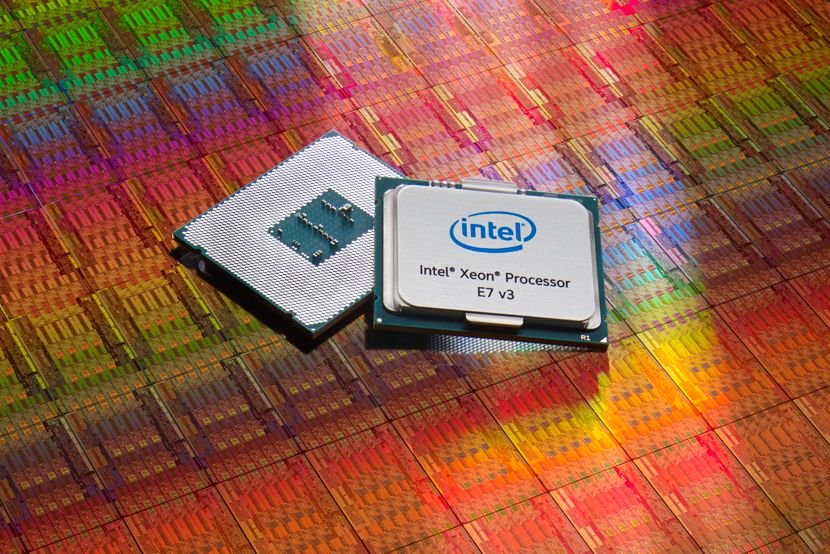Intel has refreshed its Xeon E7 processors, with version three moving the chip family to the Haswell micro-architecture, and Intel-supported Hadoop expert Cloudera endorsing the processor for big data analytics. v3 also supports up to 18 cores, 32 sockets, and 12 Tbyte of RAM.
The Xeon E7-8800/4800 v3 product families have improvements designed to support their use in in-memory computing applications, with extensions to synchronize transactions in the chip memory - an important feature for applications like Hadoop where processing is distributed to the data.
More performance in memory
“In the digital services economy, success or failure can depend on how quickly businesses act on insight from vast stores of data,” said Diane Bryant, senior vice president and general manager of the data center group at Intel, before detailing the chips’ specifications.
The v3 generation is 40 percent faster than the previous one, Bryant says, and has up to six times the performance in handling business processing applications for in-memory transactional workloads, thanks to some transactional synchronization extensions (TSX). The eighteen cores are three more than v2 could have.
Intel made a dig at its RISC competitors, claiming that the new Xeons offer ten times the performance and an 85 percent lower total cost of ownership than chips based on ARM, SPARC or OpenPower - apparently because they are cheaper to buy, and need less power or cooling.
There are twelve models in the series, for specific markets, including two high-frequency models designed for really fast database applications.
Server manufacturers will be launching machines that use the new chips, with Intel name-checking 17 of them, including Bull, Cisco, Dell, Fujitsu, Hitachi, HP, Huawei, Inspur, Lenovo, NEC. Oracle, SGI, and Supermicro.
Cloudera deal details
One of the leaders of the community using the open source Hadoop platform for big data, Cloudera has received Intel’s biggest ever data center investment, which has been estimated as a commitment of up to $740 million.
This week, Cloudera promised an upgrade of its Hadoop distribution, that will operate faster, thanks to the new processors. In particular, the inclusion of the latest Intel implementation of the AES standard will let Cloudera’s software encrypt Hadoop data faster, and work about 2.5 times faster. Encrypting Hadoop data will use only one percent of the performance of one of the new Xeon CPUs, said Cloudera.

